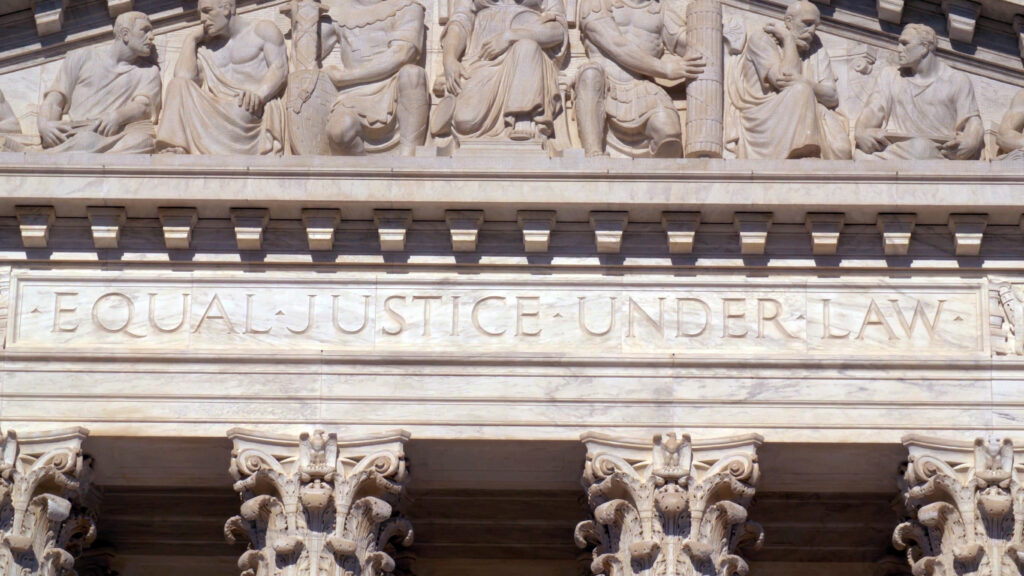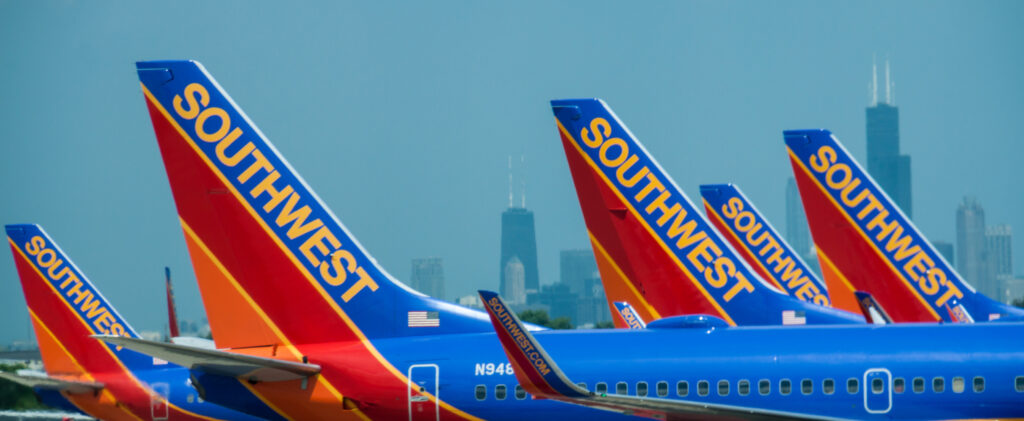The US Supreme Court recently decided a case further defining the FAA’s (9 U.S.C. § 1) exemption that “nothing herein contained shall apply to…any other class of workers engaged in foreign or interstate,” which prevents employers from forcing such class of workers into arbitration. The Court decided that to be “engaged” in “commerce” means to be directly involved in transporting goods across state or international borders. And any class of workers so engaged falls within §1’s exemption, including the airplane cargo loaders at issue in this case.
Nearly every sector of the economy was hit hard during the covid pandemic, but almost none harder than the commercial aviation industry. Between the discovery of covid in 2019 and the distribution of life-saving vaccines in late 2020, the number of passengers flying dropped by over 60%. Airlines were in shambles, and layoffs were massive. Staff, from pilots to flight attendants to baggage handlers, were let go in an effort to slow the economic hemorrhaging.
Fast forward to 2022. Several effective vaccines have been developed and distributed, along with several promising therapies and treatment protocols. Governments around the globe have lifted travel restrictions. After two years of being locked down, the general public is hungry to get out of the apartment and see the world. The desire to fly is through the roof. Unfortunately, airline infrastructure, decimated by the pandemic, cannot ramp up fast enough to meet the unleashed demand.
It is in this post-pandemic environment that the lawsuit of Southwest Airlines vs. Latrice Saxon comes to rise.
Origins of Southwest vs. Saxon
Latrice Saxon worked as a ramp supervisor for Southwest Airlines. Her job duties included training other employees and loading and unloading cargo. Because of labor shortages, Saxon and many other Southwest employees were asked to work far more than the standard 40 hours per week they were scheduled. While the additional hours were compensated, Southwest failed to pay the federally mandated overtime pay. When Saxon realized she and the other employees weren’t being fairly compensated, she filed a class action lawsuit against the airline.
Southwest Asks for Lawsuit to be Dismissed
It has become seemingly ubiquitous among large corporations to require their employees to sign arbitration agreements upon employment. An arbitration agreement attempts to stipulate that should a dispute arise between the company and an employee, the employee agrees to arbitrate the disagreement out of court and waives her 7th Amendment right to a Jury trial. Most people believe Arbitration can be advantageous because conflicts can be resolved quickly and with less expense to both parties. However, in reality, arbitration can be a complex, convoluted, and expensive endeavor for resolving disputes. Many forced arbitrations are rigged against employees and consumers. And in an industry as specific as the airlines, finding an unbiased arbitrator to hear and decide the case can be a daunting and dubious process.
After Saxon brought her lawsuit to court, Southwest argued that she had entered into an arbitration agreement and that the dispute should be decided outside of court. The district court agreed with that ruling and ordered Saxon’s case to arbitation. Saxon appealed.
Exemption for Specialized Workers
The Federal Arbitration Act of 1925 (FAA) is the law passed by Congress that allows companies and their employees to settle disputes through arbitration instead of in the courtroom. While the law gives widespread authority to avoid litigation, it also carves out specific exemptions for those working in interstate and international commerce. Article 1 of the FAA ends with the phrase: “but nothing herein contained shall apply to contracts of employment of seamen, railroad employees, or any other class of workers engaged in foreign or interstate commerce.” Saxon argued that her duties involving loading and unloading baggage constituted her being engaged in foreign or interstate commerce.
Saxon, seeking to avoid arbitration and have her day in court, claimed that as a baggage handler, she was a protected class member because she was “engaged in foreign or interstate commerce.”
Southwest Disputes Classification
Southwest countered Saxon’s notion by stating that baggage handlers are not part of the protected class laid out in the FAA. Instead, only those employees directly engaged in the physical transportation of that cargo, i.e., the pilots and flight attendants, were exempted from arbitration.
Contradictory Rulings
Based on these arguments, the 7th Circuit Court of Appeals agreed that Saxon was part of the protected class of workers and should have her day in court. However, the United States Court of Appeal for the 5th circuit sided with Southwest, ruling instead that the lawsuit should be dismissed and the case decided in arbitration.
This contradiction in rulings would send the case all the way up to the highest court in the land.
The Supreme Court Case

On March 28th, 2022, arguments were made before the United States Supreme Court. Attorneys for Southwest maintained that baggage and cargo handlers were not explicitly involved in transporting goods across state and international lines. Therefore they were not entitled to the exemptions specified in the FAA for workers engaged in interstate and international commerce.
Attorneys for Saxon argued that the baggage handlers were directly involved in transporting goods across state and international lines and were exempt from being forced into arbitration. This was even though Saxon and the thousands of other Southwest employees who joined in the class action lawsuit had signed an employment contract agreeing to settle disputes through arbitration.
Interestingly, the court found that the arguments posed by attorneys for both sides posed legally flawed arguments.
A Flawed Premise in Saxon’s Argument
The exemption cut out in the original FAA specifically mentioned seamen, railroad employees, and “any other class of workers engaged in foreign or interstate commerce.” In the original lawsuit filed by Saxon, she argued that all airline workers should fall under that definition and specifically cited the “seamen” terminology. The court found this logic legally unsound because, at the time of its enactment, seamen represented a subset of maritime employees, not the entirety of those employed in the marine industry.
While the court pointed out the flaw in Saxon’s legal argument, it also found all three of Southwest’s arguments to be flawed and failed.
Southwest’s Three Flaws
Cherry Picking Protected Status
Southwest leaned on the article one passage in the FAA and attempted to use the fact that seamen did not refer to all maritime employees to undermine Saxon’s argument. The court found this selective use of only one of the three groups specifically protected in the FAA problematic. Basically, only one of the three groups mentioned in the FAA, seamen, possessed the elements that Southwest attorneys relied on to make their case. Selecting attributes from one protected group member while omitting those of another amounted to a flawed argument in the court’s eyes.
Superfluous Examples
In their second counterargument, Southwest cites several cases where employees from companies involved in shipping goods across state and international lines were expressly denied protection under article 1 of the FAA. The court found that the examples provided were “far more removed from interstate commerce than physically loading cargo directly on and off an airplane headed out of State.”
Mischaractersing the FAA
The final argument presented by Southwest asked the court to consider the mindset of the lawmakers. It argued that the FAA was a “pro-arbitration” law and asked the court to err on the side of granting fewer exemptions to employees. The court ruled against this interpretation, arguing that the “plain text” favors Saxon’s position.
The Final Ruling
On June 6th, the court issued a decision in favor of Saxon. Authored by Justice Clarence Thomas, the court ruled 8-0 against Southwest Airlines. The class action lawsuit against Southwest could proceed and Saxon’s job duties fit into the exemption of FAA § 1. This case provides opportunities for Plaintiffs to argue that their job duties are exempted from arbitration because of their involvement in interstate commerce.

